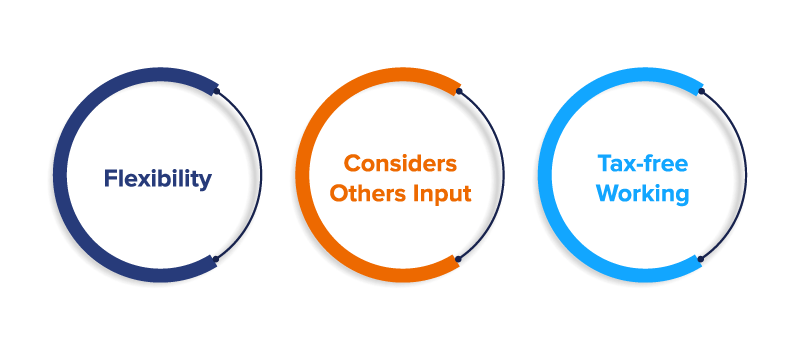HSA Vs FSA: Know Its Difference And Benefits For Medical Expenses

Table of Contents
Every company has a concern about their employee retention with them. Health care benefits are more critical for the workforce than any other expected advantage from the firm. It opens a new door for the workers to save their salary for health expenses, giving them some tax payment relaxation. The company can basically offer two approaches to their workforce for saving their money for medical bills. They are Health Saving Account and Flexible Saving Account. Generally, it is expected that the respective manager must be clear about HSA vs FSA. However, with the increasing use of integrated softwares the computations are automated which ensures accuracy in offering medical benefits to their workforce.
Both plans work in a similar approach. The manager and the workforce jointly can contribute to the worker’s account. It is all the employer’s decision whether he wants to be a part of it or not.
What Does HSA Mean?
Health Saving Account functions as a personal saving structure that is useful for medical costs. It benefits you as you don’t have to make efforts for any medical price from your pocket. The respective collection in the account is helpful to managing such health care charges.
What Does FSA Mean?
A Flexible Saving Account refers to a tax-saving account that gives relaxation to the staffing in tax payment. It helps the workforce to save money for their healthcare amount. Like HSA in FSA, too, the managers can donate to their workforce account. It is useful for making their medication and endodontist expenditure only.
There is a second type of FSA called dependent-care FSA, which is valid for little ones and relatives who are incapable of taking care of their own. Its regulations differ from the general FSA rules. Whatever portion subtracts from the respective workforce account does not apply to any kind of tax payment.

What Are The Frequently Asked Questions For The Medical Insurance Plans?
As FSA and HSA has many similarities in between common questions arises in our mind that includes-
- What are the qualifying criteria to avail of the plan?
- How long can the worker contribute?
- Who will possess the charge of the respective account?
- In which situation can the workers get their money?
- How many portions can the workforce use from the collection?
- Can they change their allowance portion within a year?
How Does HSA Policy Work?
The worker can open the HSA in the concerned bank that accepts such policies. They will provide complete guidance about the opening process of the account. As per the decided quantity, the deduction will occur from your salary. If you are not working for a particular firm and working as a freelancer, you can also open a health savings account.
What Are Eligibility Criteria To Avail HSA?
To become eligible for the HSA scheme, the worker must have a medical insurance plan, often known as HDHP. It deducts more charges than the standard medical procedure. You have to give some predetermined quantity to avail for the policy as per individual or family protection.
The company that decides to set up such a policy was allowed to contribute to their worker’s accounts. It gives the manager an advantage as this policy provides less premium and becomes more economical for them. Thus they provide such policy to their workforce in the form of incentives.
The workforce is not allowed to take any other medical plan. But if employees take insurance considering a specific illness, they have liberty with it. One of the essential rules in the HSA opening process is that the respective workers should not rely on any other. The individual saving quantity is valid for co-payment, authorized medical prescription, and buying prescribed medical apparatus.
When the concerned HSA account holder workforce acquires disbursement, they have to enter the form’s details indicating that under this policy only made the expenses. If they find any irrelevant data, the authorities have the right to cut considerable money from their savings for tax payment.

What Are The Advantages Of A HSA?
There are many advantages of HSA policy; some of them are as listed below-

1. Flexibility
There is nothing like an expiring limit for the funds. The workforce has the absolute right to carry forward their savings for future use. Similar flexibility is given even if you change your job or become at the retirement stage. In the end, the account is resembling your name only, and you have complete authority to decide how to use that particular fund.
2. Considers Others Input
The policy gives flexibility in the participation process. Any relatives, your employer, any known person, and your own self can donate for your respective account. Anyone can contribute to your account, but there are specific rules for individuals and their respective relative’s donations.
3. Tax-free Working
Whatever withdrawals and earnings you make all are tax-free. You do not have to pay any kind of taxes for completing those processes.
How Does FSA Policy Work?
It is challenging to determine HSA vs FSA as there are common elements in their policy planning structure. Both have a similar approach considering the participating factor in the worker’s account. The respective portion is not applicable for paying any payroll-related taxes. The most crucial advantage of FSA is that the money is subtracted from their account before application of tax deduction to their income. They are free from tax payment for the deposited quantity in the flexible saving account. One limitation in the FSA policy is that the workers should use the remaining amount until the end of the year.
What Are The Requisite Criteria To Avail FSA?
The significant difference for HSA vs FSA for healthcare charges is their availing criteria. For opening HSA, you have liberty even if you are a freelancer, but a similar approach will not work over here. Only the employer has the right to avail the FSA for their staff. In FSA policy guidelines, the workforce can use other insurance policies along with the FSA planning.
You can also open more than one FSA, which has a specific allowance per account. Also, it is not possible to transfer money from one FSA to another.
Consider dependent care FSA; the qualification criteria differ from the normal FSA. The guidelines differ for children and relatives. If the children are not mature enough to take care of themselves, they need others’ help in their daily routine activities. For the relatives, if they are physically or mentally disturbed and need your help for more than ⅓ rd part of the day, are considered for this policy.

What Are The Advantages Of A FSA?
Let’s look at some of the good points of FSA for workforce betterment as shown below-

1. Saving From Tax-payment
The respective deduction amounts generally occur during the payroll process, which can now be easily shifted to an software for accurate calculations. It gives the employees an advantage as the portion of money deducted before the taxation process, which shows lower-income and subtracts less tax payment.
2. Increases Money Saving
As mentioned above, there will be a reduction in tax payment which ultimately increases the employee’s salary sum. It increases their gross pay and can use it for making expenses other than health care.
3. Flexibility In Deciding The Depositing Amount
At the starting of the year, workers have flexibility in deciding the deductible portion for their flexible saving account. The fixed amount deduction will occur from their income all over the year.
What Are Dissimilarities Between HSA And FSA?
It is difficult to determine HSA Vs FSA, as both are healthcare plans and help in the reduction of the tax payment. But still, there are important factors that distinguished between them. They are as shown below-
| Sr.No. | Content | HSA(Health Saving Account) | FSA(Flexible Saving Account) |
|---|---|---|---|
| 1 | Eligibility | HDHP is requisite to qualify for this policy | Managers have to set up first for workers to make them eligible for the health care plan. |
| 2 | Account Ownership | The workforce has an absolute right over their respective account. | Similar to HSA in FSA also the workers own their accounts entirely. |
| 3 | Account Balance Extension Period | The residual amount is possible to transfer next year. | The worker should use this remaining portion within the particular year. It cannot extend in the coming year. |
| 4 | Contribution Limit Changing Period | The workforce can alter the fixed depositing value as long as they do not exceed their grant limit. | It should be determined in the starting period of the year. If there is any alteration in family status, it is possible to modify the existing grant limit. |
| 5 | Procedure For Saving Acquirement | The worker has to fill in the specification regarding the medical charges on the form provided in the IRS guidelines. | In FSA, the workforce does not need to fill such a form. |
| 6 | Cash Accessibility | The respective amount that the workforce has deposited can get access up to that amount only. | The workforce has the total absolute right for expenses at the beginning of the planning year regardless of their deposited amount. |
| 7 | Withdrawal Penalty | If any worker uses the amount in non-healthcare expenses, they have to compensate for a specific tax amount. | The manager does not give access to their workforce for making expenses other than a healthcare concern. |

The Bottom Line
Consider all the aspects of the FSA and HSA. As per your present situation, choose the best one to survive from the high-rate medical expenses in the future. Offering such a policy to your staff will increase their satisfaction and lower their tax burden.
Grow your business with factoHR today
Focus on the significant decision-making tasks, transfer all your common repetitive HR tasks to factoHR and see the things falling into their place.

© 2025 Copyright factoHR


